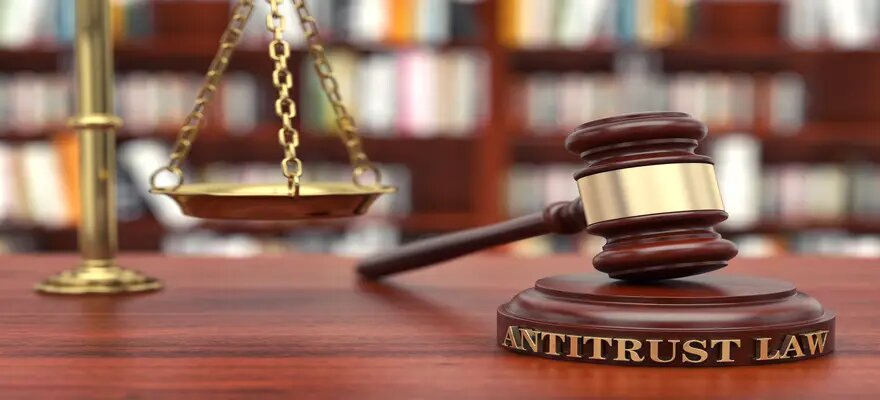
Federal Antitrust Offenses
What is a Federal Antitrust Offense?
Federal antitrust offenses refer to a violation of antitrust laws at the federal level in the United States. Antitrust laws are designed to promote fair competition and prevent anti-competitive practices that could harm consumers or hinder the functioning of a free market economy.
Antitrust offenses typically involve actions that restrain trade, limit competition, or create monopolies in a way that harms consumers or other businesses. These crimes are enforced by the Department of Justice’s Antitrust Division in the United States.
Some Common Types of Federal Antitrust Crimes Include:
Price Fixing – When competitors agree to set prices at a certain level, eliminating competition and artificially inflating prices.
Bid Rigging – Colluding among competitors to rig bids on contracts, undermining the bidding process by limiting competition and ensuring a specific outcome.
Market Division or Customer Allocation – Dividing sales territories or assigning customers among competitors, effectively eliminating competition in specific regions or industries.
Monopolization – Engaging in anti-competitive practices to establish or maintain a monopoly, such as predatory pricing, exclusive dealing, or unfair exclusionary conduct.
Mergers and Acquisitions Violations – Failing to comply with antitrust laws in the context of mergers, acquisitions, or business combinations that may substantially lessen competition or create a monopoly.
Antitrust Conspiracies – Engaging in agreements or conspiracies among competitors to engage in anti-competitive behavior, such as dividing territories or customers, fixing prices, or rigging bids.
These are just a few examples, and there are other actions that can also constitute federal antitrust crimes.
Penalties Can Include:
Penalties for federal antitrust offenses, also known as antitrust violations, can vary depending on the specific crime committed and the circumstances surrounding it. Antitrust laws in the United States are primarily enforced by the Department of Justice (DOJ) and the Federal Trade Commission (FTC). The penalties for antitrust crimes can include both criminal and civil penalties.
Criminal Penalties
Individuals – Individuals found guilty of antitrust offenses can face significant fines and imprisonment. The maximum criminal penalties for individuals can be severe, including fines in the millions of dollars and imprisonment for up to 10 years for each offense. Repeat offenders may face longer prison sentences and higher fines.
Corporations – Corporations convicted of antitrust offenses can also be subject to substantial fines. The maximum fines for corporations can reach billions of dollars, or even higher if the court finds that the corporation gained substantial profits from the illegal conduct.
Collusion and Bid-Rigging – Collusion and bid-rigging, which involve agreements among competitors to manipulate prices or allocate markets, can carry criminal penalties. Those found guilty can face fines and imprisonment, with maximum penalties similar to other antitrust crimes.
Civil Penalties
Injunctions – The DOJ or FTC can seek injunctions to prevent ongoing antitrust violations or to remedy the effects of past violations. Injunctions may require the defendant to change its business practices or divest certain assets.
Civil Fines – The DOJ and FTC can impose civil fines on individuals and corporations found in violation of antitrust laws. The maximum civil fines for corporations can be significant, potentially reaching hundreds of millions of dollars or higher, depending on the violation.
Damages – Parties harmed by antitrust violations may file civil lawsuits to seek damages. If successful, they may be awarded monetary compensation for the harm suffered, which can include treble damages (triple the amount of actual damages).
What is a Federal Antitrust Defense Attorney?
Defense attorneys practicing in this area of the law defend individuals or companies involved in antitrust cases at the federal level. Antitrust laws are designed to promote fair competition and prevent monopolistic practices that could harm consumers or stifle market competition. When the government, typically through the Department of Justice (DOJ) or the Federal Trade Commission (FTC), initiates an investigation or files a lawsuit alleging antitrust violations, a defense attorney represents the defendant(s) in the legal proceedings.
The role of a defense attorney involves providing legal counsel and representation to clients accused of anticompetitive behavior or violations of antitrust laws, such as price-fixing, bid-rigging, market allocation, monopolization, or unfair trade practices. Defense attorneys practicing in this area of the law have in-depth knowledge of antitrust laws, regulations, and legal precedents, as well as a comprehensive understanding of economics and business practices related to competition.
Defense attorneys work closely with their clients to develop a defense strategy, gather evidence, analyze complex economic data, and challenge the government’s case. They may negotiate settlements, represent clients during investigations or hearings, and, if necessary, defend their clients in federal court trials. The ultimate goal is to protect the client’s rights and interests, and if possible, secure a favorable outcome, such as the dismissal of charges or a reduction in penalties.
Given the complexity and significance of antitrust cases, defense attorneys representing individuals or entities charged with federal antitrust offenses typically have substantial experience in this area of law. The lawyers at the Attorneys For Freedom Law Firm are admitted to practice in federal court and have decades of experience defending the rights of their clients. Our attorneys have the proficiency and knowledge to provide the best possible defense of these charges.
To schedule a Strategy Session with an experienced federal manslaughter crimes attorney, contact the Attorneys For Freedom today. We can be reached online at AttorneysForFreedom.com or by calling our Arizona office at 480-755-7110 or our Hawai’i office at 808-647-2423.
1003 Bishop Street, Suite 1260 Pauahi Tower
Honolulu, Hawai’i 96813
Phone: 808-647-2423







